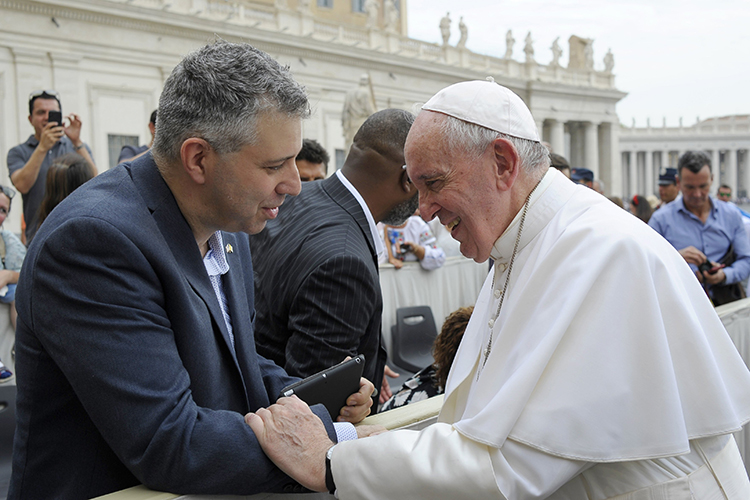This information refers to a documentary on Francis that collects opinions of the Pope on several very disparate topics, many of them taken from previous occasions. This is the case with the interview the Pope gave in May 2019 to Valentina Alazraki, Televisa's correspondent in Rome, and his question on "whether a homosexual couple can bring their children to church". The version offered by the documentary some fragments of Pope Francis' answer is: "Homosexual people have the right to be in the family, they are children of God, they have the right to a family. No one can be kicked out of the family, nor make life impossible for them because of that. What we have to do is a law of civil cohabitation. They have the right to be legally covered"..
These sentences seem to contain a tight allusion to the question raised, but also to the possibility of homosexual children in a family (with their right not to be thrown out of the family because of their homosexual condition)... and an opinion about the convenience of a civil legislation guaranteeing certain rights to those in a homosexual union.
Now, as it has been learned, the documentary at this point does not respond to the answer given by Televisa, but has "edited" it, as, by the way, it was already edited at the time by the Holy See. The result is that what the Pope answered about the way to treat a possible homosexual child appears as the claim of a family and a legal union (some may have understood that also "matrimonial") for people of the same sex. The sequence of the argument has been disrupted.
Regarding the proposal that they be granted certain forms of civil protection, the Pope's last sentence then adds: "I defended that.". This was precisely the case when in his country he opposed the law for gay marriage, asking for the introduction of certain legal protection as an alternative. Therefore, there is no equivalence between marriage and same-sex unions.
Change of doctrine?
So, has there been a change in the Church's doctrine on homosexuality? We solve it by reading two brief but decisive texts.
The first is point 2358 of the Catechism of the Catholic Church, regarding the treatment of homosexual persons: "An appreciable number of men and women present deeply rooted homosexual tendencies. This inclination, objectively disordered, constitutes for most of them a real trial. They must be received with respect, compassion and gentleness. All signs of unjust discrimination should be avoided in their regard. These people are called to carry out the will of God in their lives, and, if they are Christians, to unite to the sacrifice of the cross of the Lord the difficulties they may encounter because of their condition". Therefore, they must be treated with respect for their dignity.
The second is number 251of Amoris laetitia, Pope Francis does not intend to approve homosexual unions: "There is no basis for assimilating or drawing even remote analogies between homosexual unions and God's design for marriage and the family [...] It is unacceptable that local churches are under pressure in this matter and that international agencies make financial aid to poor countries conditional on the introduction of laws instituting same-sex "marriage"."
Pointing out the need for legal coverage of certain aspects does not imply approving these unions or considering them morally good; the Pope thus does not speak of "marriage", but of a law of "cohabitation", which is on another level. Already in 2014, an interviewer asked the Pope this question: "Many countries regulated civil union. It is a path that the Church can understand, but to what extent?". The Pope's answer was: "Marriage is between a man and a woman. The secular States want to justify the civil union to regulate various situations of cohabitation, driven by the need to regulate economic aspects between people, such as, for example, social work. It is necessary to look at each case and evaluate them in their diversity"..








